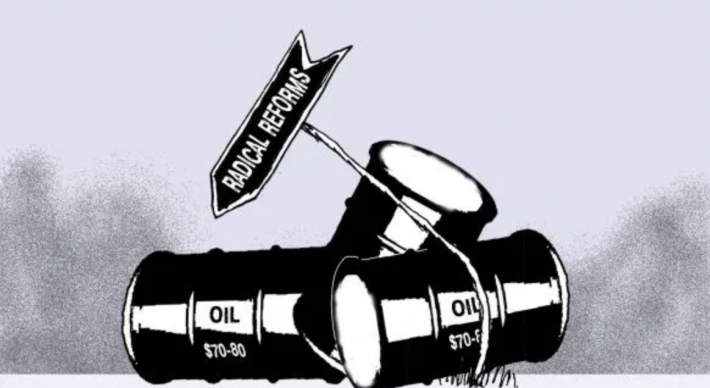The concept of a rentier state is closely linked to oil-rich producing states in the Middle East. The theory attempts to explain how the oil and gas economies affect the nature of these states.
In Arab oil states, it has been estimated that two to three per cent of the labour force is involved in producing and distributing oil wealth, contributing sixty to eighty per cent to the GDP. This indicates a rentier economy, which depends on the production and distribution of natural resources (rent revenues) that go directly to the state or government.
This hierarchical economic system is designed so that the state or government sits at the top, supporting its clientelist network. Initially, the state acted as a benefactor of private favours through the head of state’s generosity. Now, it functions as a public goods provider in exchange for its citizens’ loyalty. This social contract between state leaders and citizens can explain the democracy deficit in the Middle East.
The social and economic structure of rentiers is unfavourable to democratisation, as taxes are not imposed on citizens. Therefore, they are encouraged to demand representation. At the same time, the dependence of regimes on external sources of rent links the interests of elites to external markets and states. It protects them from accountability to their populations.
The term rentier monarchy illustrates the unique combination of oil and tribalism and the hybridity of tradition and modernity, a unique occurrence in the Middle East region. In this case, traditional forms of patriarchal and religious legitimacy preserve authority, and rent from oil revenues invigorate pre-existing ‘traditional’ structures around which the state is consolidated. This raises the question of why authoritarian regimes emerge.
Many theorists have explained why authoritarianism is the dominant form of governance in the Middle East and attributed it to geography, culture, religion, identity, political economy, global forces and institutions, and lack of modernization. Overall, it isn’t easy to attribute one variable to the emergence of authoritarianism in the Middle East. Instead, each state needs to be evaluated individually to determine the conditions that have hindered democratization.
Lastly, it debunks the question of the compatibility of Islam and democracy. Instead, it questions how religious ideologies and interpretations of Islam (such as conservatism, reformism, and radical Islam) have legitimized and maintained authoritarian regimes.
Sabihah Khatun Miah
